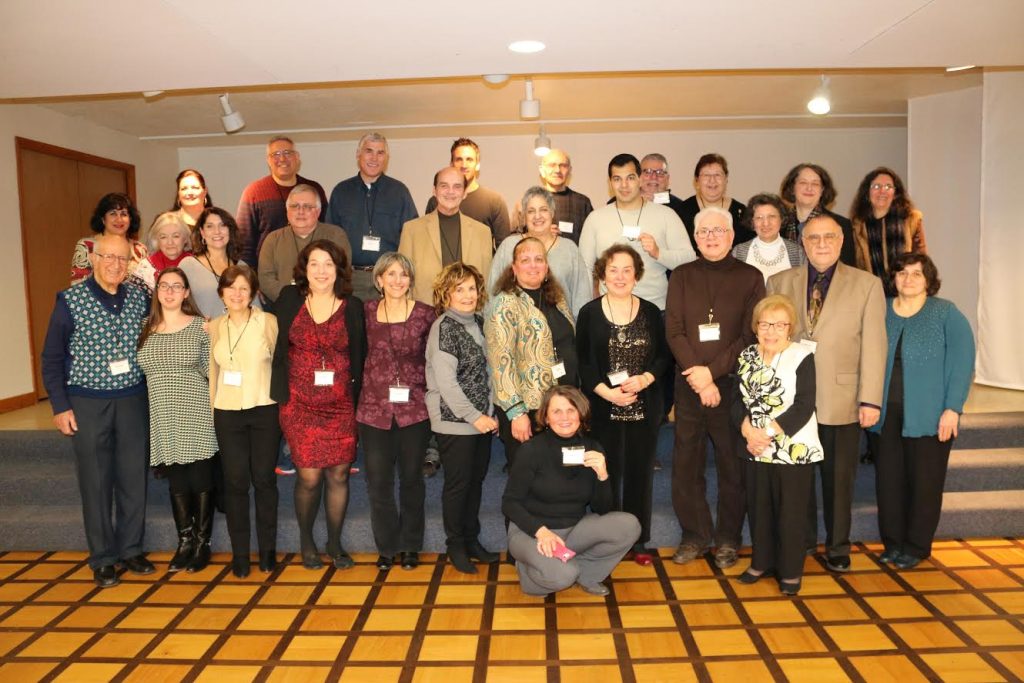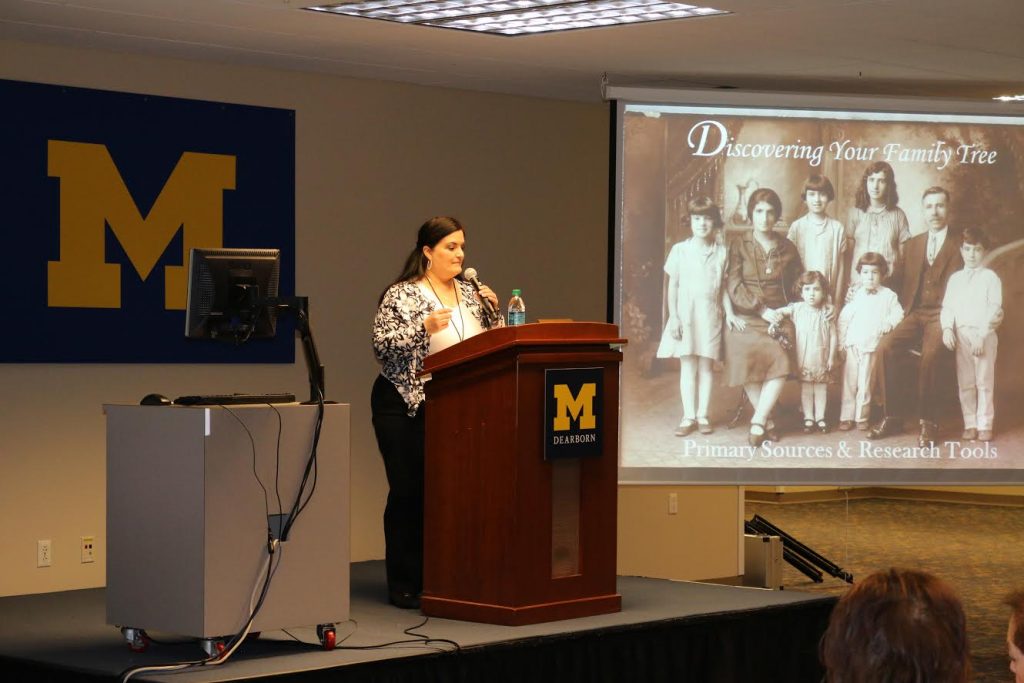DEARBORN, Mich. (A.W)—The second annual Armenian Genealogy Conference took place at the University of Michigan-Dearborn on March 18, while several related events were held in the Detroit area throughout the weekend. The conference was sponsored by the Armenian Research Center at the University of Michigan-Dearborn and co-sponsored by the Cultural Society of Armenians from Istanbul, the Nor Keghi Association, and the National Association for Armenian Studies and Research (NAASR). Over 250 people from 18 states attended the conference.
The weekend’s events kicked off on the evening of March 17, with an opening reception. Over 150 people with Armenian ancestry gathered at St. Sarkis Lillian Arakelian Fellowship Hall to connect with each other and to enjoy a traditional Armenian buffet, in which each item was identified by its historic origins. Der Hrant Kevorkian, pastor of St. Sarkis Armenian Apostolic Church, extended a warm welcome to the guests who were seated at tables that mapped the geography of Historic Armenia with each table being designated a particular province. This gave conference attendees the opportunity to connect with others whose ancestors hailed from the same regions of Historic Armenia. Whether Keghitsis, Everegtsis , Adanatsis or Kharpertsis, compatriots made their way for group pictures taken according to regional roots.
The March 18 conference opened with introductory remarks and a welcome by George Aghjayan and Ani Boghikian Kasparian of the organizing committee as well as by Dr. Ara Sanjian, the director of the University of Michigan-Dearborn Armenian Research Center. The morning sessions touched on genealogy 101 (Tracy Keeney), the hidden Armenians of Turkey (George Aghjayan) and the history of the Palu region (Vahe Tachjian).
In the afternoon, participants went into four consecutive break-out sessions on various themes, including the Armenian Immigration Project (Mark Arslan), genealogy and social media (Tracy Keeney), DNA testing (Janet Achoukian Andreopoulos), Armenian/Ottoman records (George Aghjayan), success stories (Jen Langley), and sources in Armenian research centers (Ani Boghikian Kasparian). Speakers shared “success stories” of genealogical discovery and encouraged those in attendance to start putting together the puzzle pieces of their own family history.
In her presentation on the morning of March 18, Tracy Keeney, creator of the Armenian Genealogy Facebook page, encouraged conference attendees to become more involved in tracing their family lines, whether it is through genealogy websites, newspapers and national archives, or Google, stating: “You never know what you’re going to find and where you’re going to find it.” Keeney also emphasized the importance of connecting with living relatives. “You’re not going to find this all on ancenstry.com,” she said. “There’s so much more to genealogy than names and dates.”
Meline Lachinian, who has been interested in Armenian genealogy for twenty years, described the conference as “a labor of love.” She explained that as a result of a meeting with the director of the Houshamadyan Project Vahe Tachjian at last year’s genealogy conference, he published an article about her family narratives and photos.
On the evening of March 18, the banquet participants enjoyed the culturally rich program with traditional songs and dances of historic Armenia. Harry Kezelian III, accompanied by Dickran Callan, sang songs from various regions, explaining the occasion of when they used to be sung, while playing the oud. The Hamazkayin Arax Dance group of Detroit, led by Nayiri Karapetian, performed dances from Vasbouragan, Shirak, Kessab, and Sepastia. They invited the guests to join them in an effort to reintroduce some of the original steps.
On the morning of March 19, attendees had an opportunity to attend mass at the local Armenian churches. In the afternoon, everyone was shuttled to St. John’s Armenian Apostolic church for a tour of the Alex and Marie Manoogian Museum. As everyone was gathered in the art gallery, Ms. Lucy Ardash, the director of the museum, highlighted some of the special artifacts from the collection. With docents in each of the six galleries of the museum, the guests went through at their own pace, identifying with artifacts from their ancestral towns and villages.
The tour was followed by the farewell reception with a warm welcome by Hayr Aren Jebejian, pastor of St. John’s Armenian Apostolic Church. Guests enjoyed more Armenian pastries and more time with newly discovered family and friends. Participants thanked the organizers, George Aghjayan, Janet Achoukian Andreopoulos, Mark Arslan, Luc Baronian, Ani Boghikian Kasparian, Tracy Keeney, Jen Langley, Marc Mamigonian, and Shoghig Shahinian for a worthwhile conference and left with great anticipation for its next installment.


